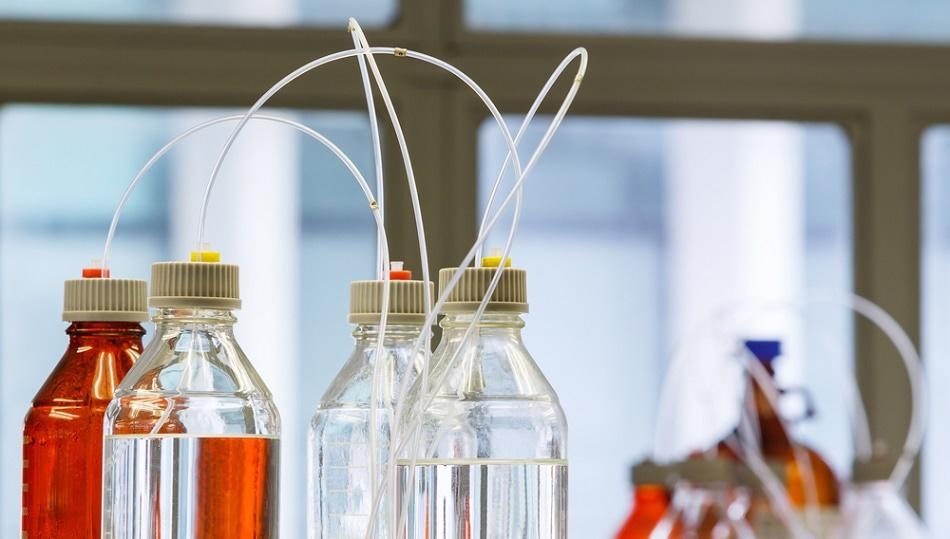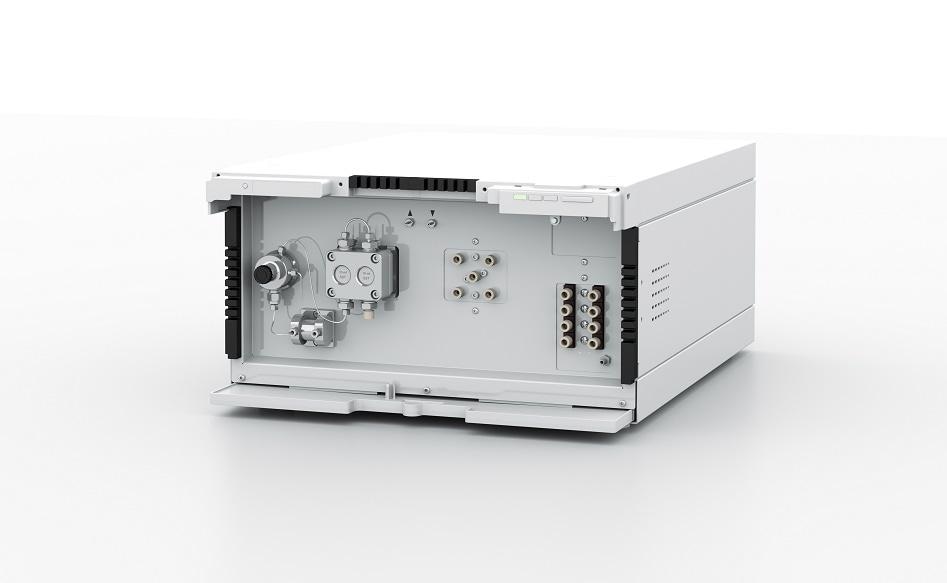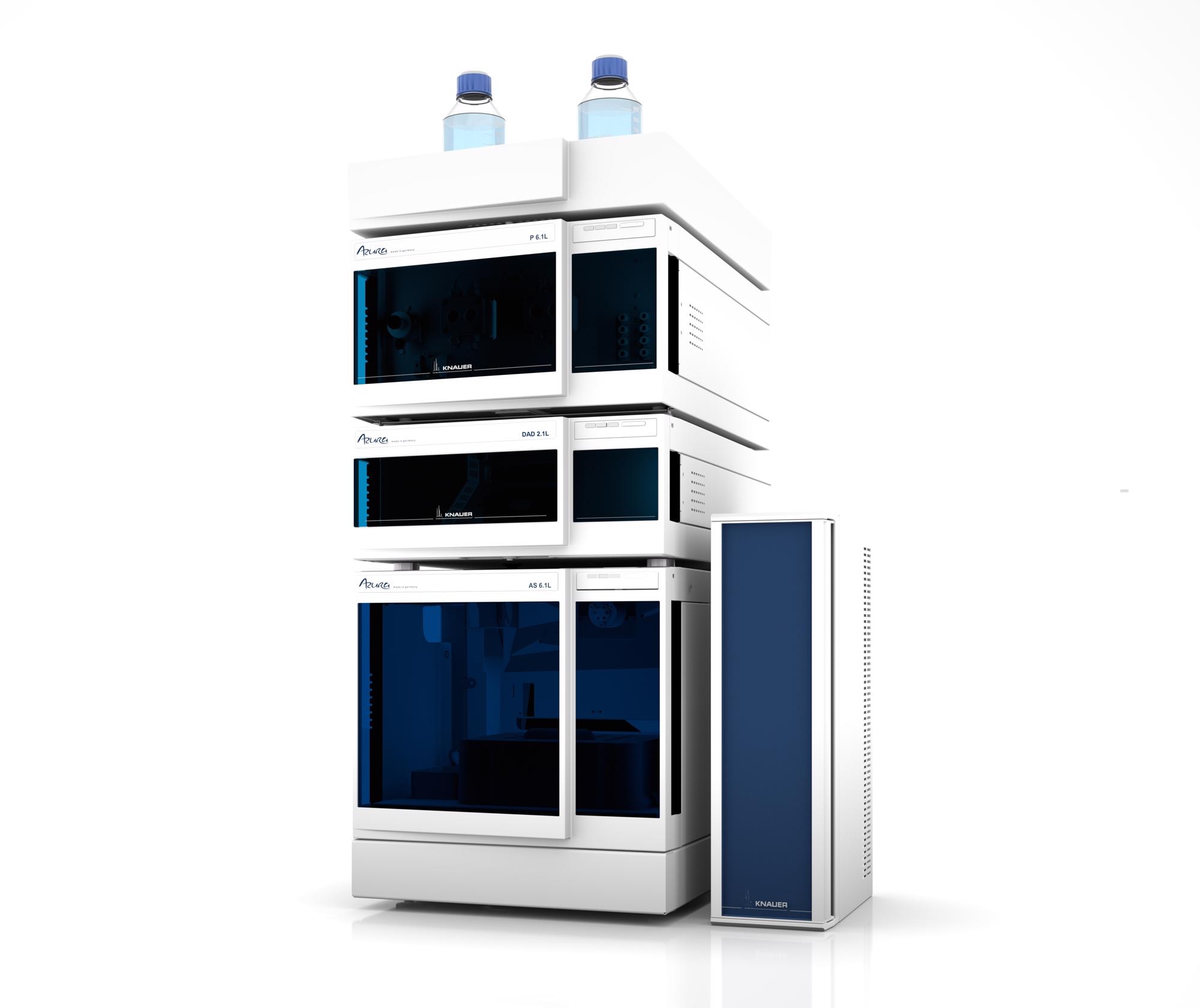
HPLC has become a backbone of synthetic and analytical chemistry, meaning any serious lab has at least one HPLC system. Due to the broad range of different compounds and solvents everyday chemists have to work with it is becoming increasingly important that HPLC systems are versatile enough to meet researchers needs.
KNAUER are experts in HPLC and provide modular HPLC systems which can be easily integrated into existing analytical equipment and adjusted depending on the seperation required.
AZoM spoke to, John Rohloff, product manager for analytical HPLC at KNAUER, about the HPLC systems that KNAUER provide and the expert advice they offer researchers on achieving the best seperation possible.
HPLC is a major separation technique. Could you please introduce our readers to HPLC?
HPLC, High Performance Liquid Chromatography, is one of the standard analysis techniques used in nearly every laboratory.
As the name implies, it uses a liquid solvent as an eluent. Analytes are separated as they pass through the chromatographic column according to their chemical and physical properties and characterized after seperation using different detection principles.
A stationary phase, which typically consists of a chemically modified silica gel, induces the separation of the analytes. Afterwards, the analytes separately enter a detection unit, which is usually a UV/VIS-detector, which measures the absorption of light of each analyte at a specified wavelength.
Recently UV detectors have been being replaced by mass spectrometers which allow highly accurate identifications.

Solvents for use in analytical HPLC. shuttertstock.com | Smith1972
What are the main applications of HPLC?
Due to its widespread analytical possibilities, HPLC offers a broad range of feasible fields of applications in laboratorys and also in the clinical sciences.
KNAUER tries to focus on applications like Food and Beverage Analytics or Environmental Analytics. On our website, we offer nearly 400 different application examples, including method parameters and chromatograms.
How does the modern HPLC setup differ from the instrumentation used when the technique was first developed over 50 years ago?
A modern HPLC differs a lot from how the instruments were configured years ago.
Over time, new production techniques have been introduced, which has resulted in smaller particles being used in the stationary phase. This has resulted in a much better separation performance.
However, smaller particles produce a higher backpressure under the same flow rate and therefore require more sophisticated pumps. Furthermore, the overall system volume has been decreased and miniaturized, resulting in technologies like micro- or even nano-HPLC, which can analyze samples with volumes of a few microliters.
What different parameters are important to control to ensure an efficient HPLC separation?
Every HPLC System consists of many different modules. Every module features a broad set of parameters.
Two of the main parameters are the flow rate and the gradient composition. But nearly every other parameter has an influence on the separation performance and results, in such a way that even small variations can affect the chromatogram. On top of this, different applications demand a different performance in terms of flow rate, back pressure or detection.
KNAUER HPLC systems are modular and can easily grow in response to the different requirements of each customer and application. Pumps can be equipped with different types of pump heads, detectors can be upgraded, etc. Due to the modular setup, single modules within an instrument can be easily exchanged by different ones. The customer is able to react to every eventuality.
Additionally to this, our facility in Berlin features a state-of-the-art laboratory manned with specialized scientists, who support the customers with their separation problems. KNAUER offers an application service where customers can send in their sample, which will then be used by our staff to determine the most effective analytical HPLC method.

The pump for the KNAUER's AZURA HPLC system
How can lab operators determine the best system and solvent for their particular separation?
This is not an easy task and requires a lot of knowledge and experience. Even after years of work in the field of HPLC it can be hard to choose the correct solvent or method parameters.
Fortunately, KNAUER will help customers to find the best solution in terms of the hardware they should use and the best method to achieve their seperation. Every inquiry we receive is handled by highly skilled scientists, who will set up a system configuration best suited for the particular request.
No system will just come out of the shelf since KNAUER Analytical HPLC is a highly modular system. The modularity enables a design matched to the customer’s needs. Knauer configures HPLC systems according to the customers’ requirements. A pump, for instance, can be constructed to differ in flow rate, wetted materials and back pressure range.
With the help of our technicians, the customer can choose the best suitable device, depending on their requirements and applications, but also on their individual budget. The result is a very exclusive and dedicated piece of equipment.
Normally, a laboratory already owns a vast set of analytical devices or even HPLCs. How can HPLC systems be integrated with other analytical system in the lab?
There are several possibilities. Either, the customer wants to buy a complete system to incorporate it into his lab, or wants just a particular module to enhance an existing system.
KNAUER offers instrument drivers for different chromatography data systems, like Data Apex’s Clarity®, Agilent’s OpenLab® EZChrom Edition or Thermo Scientific’s™ Chromeleon™.
Users can choose between those depending on their bias and requirements. In addition, every module features different methods of control. Normally, every module is controlled via an Ethernet controller and is connected via a router or a switch to the computer. But every detector is also equipped with an analogous output and several close contact interfaces which also offer different control options.
Furthermore, KNAUER is offering a tablet-PC solution called Mobile Control and Mobile Control Chrome. Mobile Control allows you to control your system and observe every important parameter while under Chromatography Data System control, whereas Mobile Control Chrome can, in addition, record, store and analyze data from your system.

The complete AZURA HPLC system from KNAUER
What does the future hold for KNAUER?
For KNAUER, HPLC is a stable and growing market. During the last years new developments, like UHPLC or core-shell columns, improved and enhanced classical analytical HPLC analysis. As those developments are starting to gain more significance in the market, KNAUER HPLC systems will be the perfect instrumentation to overcome daily routine analysis, as well as high-demand trace analyses.
Furthermore, we will focus also on our other core markets, like preparative HPLC, FPLC, SMB and Osmometry.
Where can our readers find out more about KNAUER and the HPLC systems that you provide?
On our website the readers can find a broad spectrum of application and product information as well as discover helpful tips and tricks on HPLC.
About John Rohloff

John studied Biotechnology at the University of Applied Sciences in Berlin. He joined KNAUER in 2011 as Product Manager for analytical HPLC.
Disclaimer: The views expressed here are those of the interviewee and do not necessarily represent the views of AZoM.com Limited (T/A) AZoNetwork, the owner and operator of this website. This disclaimer forms part of the Terms and Conditions of use of this website.